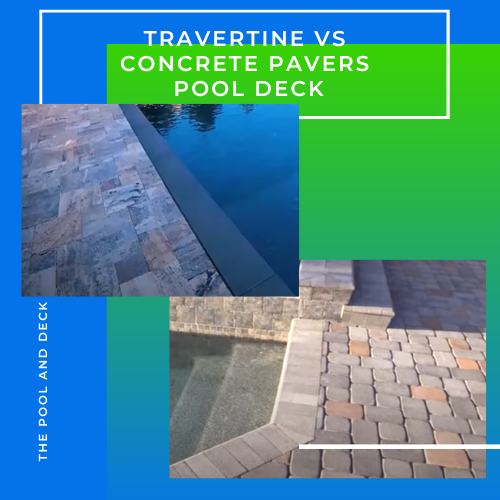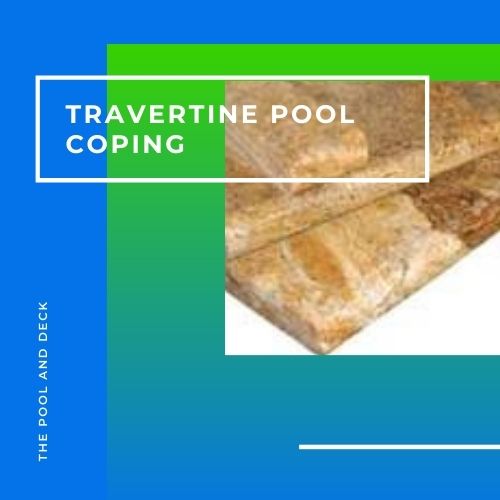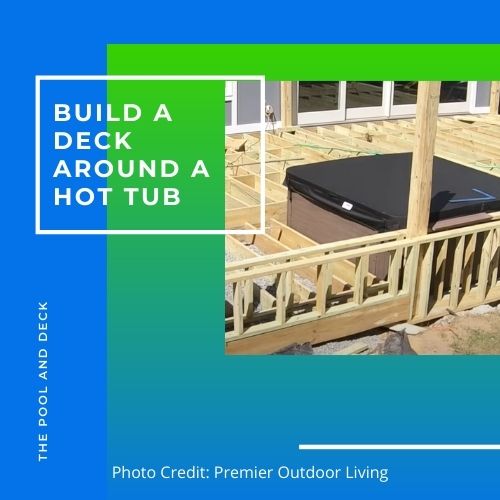How to Compare & Pick the Best Decking for a Hot Tub?
As an Amazon Associate, I earn from qualifying purchases.
Table of Contents
What Decking Is Best for a Hot Tub?
Are you planning to install a new deck in your backyard? And would you like to place a hot tub on the deck as well? Excellent idea! A soak in a hot tub on an outdoor deck can truly relax and invigorate you. At this stage you may wonder what decking is the best for a hot tub?
Wood, Composite & Concrete are the three options that you need to compare & then pick the best decking for a hot tub. To be fair all three types of decks are suitable for a hot tub.
However, a composite deck is better than a wood or concrete deck as it needs almost no maintenance and is the least likely to get damaged by the hot tub.

Some of the special requirements that a hot tub places on a deck are:
The size & weight of the hot tub could affect the choice of decking and the deck design.
The decking has to be waterproof & moisture resistant. Water splashes and treading of wet feet will keep the area around the hot tub wet. There will also be moisture on the deck, around & under the hot tub, due to high humidity & condensation.
The water from a hot tub is not the same as tap water. It has salt, chlorine & other chemicals to keep the hot tub sanitized. The decking has to be resistant to the various hot tub chemicals.
For the safety of the hot tub users you need the decking around the hot tub to be slip resistant.
How Do You Determine If a Deck Can Support a Hot Tub?
A deck that has been built to code will be able to support a hot tub. However, it is best to get professional advice on the loading due to a hot tub.
The maximum weight that a hot tub will have at full capacity will include:
- The weight of the empty hot tub. This will be specified by the manufacturer. Say 1000 pounds
- The weight of the water when the hot tub is full. A 6-8 person hot tub will hold around 600 gallons of water which weighs 5000 pounds
- The weight of 8 persons estimated at 1500 pounds
Total weight of the hot tub could reach around 7500 pounds. But this weight is spread over an area of 80-90 square feet. So the load will be less than 100 pounds per square feet. Most decks can handle 100 pounds per square feet.
The size & weight of the hot tub will determine the layout & the structural design but not the decking material.
NOTE: Please do consult a structural engineer or certified deck builder before placing the hot tub on an existing deck. Structural reinforcements may be required.
Will a Hot Tub Ruin a Deck?
The area of the deck around and below the hot tub will be pretty wet most of the time. The reason is
- Water splashes from people getting in and out of the hot tub
- Condensation from the high humidity around the hot tub
The water or the moisture around the hot tub is not pure. It has various chemicals to keep the hot tub sanitized. Some essential chemicals and their damaging effects are:
- Salt in salt water tubs
Salt water will permeate into the wood fibers. Later when the wood dries, the salt within the wood will crystallize, push the fibers apart and give the wood a “fuzzy” appearance. The wood deck will start showing signs of cracking & warping too.
Salt water damages concrete too. The sodium chloride in salt reacts with the calcium hydroxide in concrete forming crystals. The crystals cause internal cracks and crumbling concrete. A freeze-thaw cycle will make it worse.
- Chlorine Sanitizer
Chlorine also breaks down the protein in wood cells and results in “bleaching” of the wood deck over time. Chlorine will also discolor a stamped concrete deck.
Chlorine and water form Hypochlorous Acid. This mild acid works as a sanitizer and kills the pathogens in the hot tub.
But the acid is also corrosive. It will corrode the metal parts in the deck such as nails & screws. It will penetrate the pores in a concrete deck and cause the rebars to rust.
The perfect decking material for a hot tub needs to be
- Waterproof & moisture resistant
- Mold, mildew & algae resistant
- Chemical resistant
- Rot & corrosion resistant
- Slip resistant
What Material Is Used for Decks?
The most commonly used decking materials are:
Wood
Natural wood is the most used material for decking in the US. It is widely available, easy to work with, affordable and durable. Having said that there is a huge variety of woods that can be used for decking. Wood is classified as either Softwood or Hardwood.
The hardness of the wood is measured on the Janka Hardness Scale. Usually, harder woods are more dense and have lower porosity.
Softwood
Cedar, Spruce, Pine and Fir are some of the popular woods used for decking. They are not inherently moisture resistant because they are quite porous. A waterproof sealer will make them moisture resistant though.
Thompson’s Water Seal is an excellent sealer, especially for softwood. Its key features are:
- Waterproof – prevents water damage
- UV Resistant – prevents fading
- Mold & Mildew Resistant
Hardwood
Redwood, Mahogany, Tigerwood and Ipe are hardwoods that are often used for decking. They are dense and less porous but will still require protection from water.
Some of the exotic woods are not grown in North America and need to be imported from South America. This makes them quite expensive!
So, can you place a hot tub on a wood deck? You certainly can if the wood has been sealed and the deck has been constructed to code.
NOTE: A hot tub that sits on top of the deck does pose challenges as the space under the tub is difficult to reseal. A partially sunken hot tub will work better. Of course, you will need to incorporate it in the deck design & construction stage.
Composite
Composite is an alternative to wood decking. A composite is also known as “engineered” wood. It is made by combining recycled wood and plastic along with polymers and subjecting the mixture to heat & pressure.
Good quality composite will cost more than most wood decking. However, it needs very little maintenance as it does not require painting, staining or sealing. A really good composite is capped all over with a tough polymer that makes it waterproof, chemical resistant and rot resistant.
So, composite does check all the boxes. When you compare the benefits of using a composite decking to place the hot tub on, you will be convinced that composite decking is better than the other decking options.
Concrete
Concrete is a fairly popular decking material especially for pool decks and patios. Concrete is affordable, extremely strong, durable and relatively easy to work with. Concrete slabs have pretty high compressive strength and they can easily handle the weight of the hot tub.
However, concrete is porous and will be damaged when water seeps into the pores. Concrete disintegrates by a process called scaling. Water within the concrete expands and contracts as the temperature changes. This puts physical pressure on the cement causing it to break down into dust.
When water, especially water having salt or chlorine, seeps into the concrete pores, it can result in the corrosion of the steel reinforcement bars. The result is a reduction in the tensile strength of the concrete.
You should definitely ensure that the concrete deck is sealed (and resealed every 2-3 years), if you want to place a hot tub on it.
I recommend using Foundation Armor SX5000 Water Based Silane Siloxane Penetrating Concrete Sealer.
The Armor SX5000 WB penetrates deep into the concrete and chemically reacts to form a hydrophobic barrier within the pores. It reduces the absorption of water by up to 95%.
A concrete deck can crack & crumble if there is ground movement or subsidence. Proper base preparation, adequate concrete thickness and rebar reinforcement will reduce the risk.
You can put a hot tub on a concrete deck provided it is well sealed and on a sound footing.
Thank you very much for reading the post. I do hope you found it informative and helpful.







